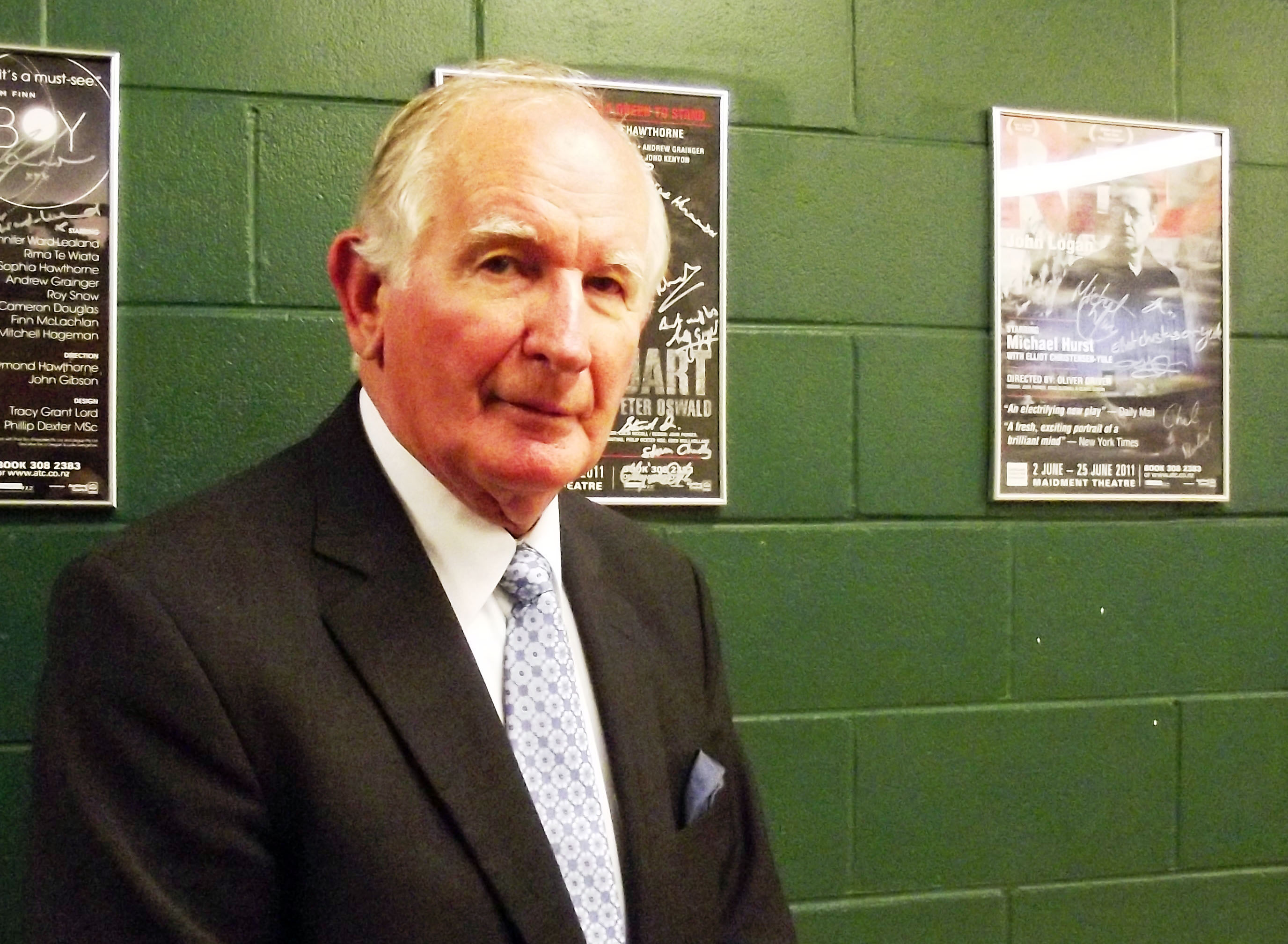
Anna Majavu
AUCKLAND (Pacific Media Watch): A retired Court of Appeal judge has slammed New Zealand’s banks as “the robber barons of our day” for failing to pay their taxes and for making “massive profits” at the expense of ordinary people.
Sir Edmund Thomas delivered the annual Bruce Jesson lecture at the University of Auckland on Wednesday this week. The lecture coincided with the Bruce Jesson Journalism Awards ceremony.
Sir Edmund is well-known for being the lawyer who brought a successful case against the 1985 All Blacks rugby tour to apartheid South Africa, giving a much-needed boost to the anti-apartheid movement’s international sports boycott.
Sir Edmund’s comments about the banks came as an unprecedented legal class action case was being taken against ANZ bank by its customers.
Speaking about strategies for reducing inequality in New Zealand, Sir Edmund said that welfare fraud, which was often depicted in the mainstream media as a huge drain on the public purse, was “minuscule” in comparison to tax dodging by the banks.
“We have banks making massive profits on the one hand and practising tax avoidance on the other,” said Sir Edmund.
Challenges in society
Inequality was so pervasive in New Zealand that the indigenous Māori people had a one in four chance of being jobless when they were young or in prison if they were male.
“I find this neglect, not just of a group but of a people, highly socially and culturally offensive,” said Sir Edmund.
Inequality could be solved in New Zealand because the cause of extreme inequality in affluent countries was not due to a lack of resources to share.
One of the problems was that the middle class in New Zealand had formed a “moderating buttress” against the exploits of capitalism after being seduced into falsely thinking that they shared the same interests as the rich and powerful, he said.
The same false view dictated that the poor were responsible for their own problems.
“The vulnerable and disadvantaged cannot simply be discarded on some scrap heap reserved for misfits,” Sir Edmund said.
Negative economic trends
To achieve a just society, the damaging features of neo-liberalism must be arrested and reversed.
The most damaging features included the economic order being permitted to dictate the values of society, he said. In other words, people being judged not on their contribution to society but on how much personal wealth they had amassed.
Another damaging feature, Sir Edmund explained, was that people had become immune to caring about exploitation.
The concept of equality had been wrongly redefined to mean equality of opportunity, which obscured the extent of real inequality and only served to create more opportunities for those already born into privilege, Sir Edmund said.
“There is a blind bias in favour of private enterprise meaning privatisation and less government funding for those in need,” he added. The community’s antipathy to unemployment had diminished in intensity with the rise of casual jobs.
“Yet unemployment is a stain on any society...it is an affront to be treated like a unit of production”.
Three problems
The final three problematic features of New Zealand society today, according to Sir Edmund, were tax avoidance, the demise of trade unions and a seemingly dwindling commitment by the community to social justice.
“Individual liberalism precludes anything but minimum empathy,” said Sir Edmund.
Trade unions needed to recapture lost ground “principally through collective bargaining” or else neo-liberalism would not be routed.
Sir Edmund said social movements and community groups must launch a focussed campaign similar to other civil rights campaigns, saying that it would be unrealistic to expect the government to pass new laws protecting human rights as these laws would only be viewed as a burden on the taxpayer.
He called for a “deep seated sense of injustice” that would fuel outrage, anger and the social unrest needed to bring about social change.
“It is possible that people will come to no longer accept their lot and that they will insist that their substantive rights are theirs, not at the whim of the rich and powerful, but theirs as of right,” Sir Edmund ended.
Anna Majavu is a journalist and Master of Philosophy student in AUT University's School of Communication Studies.
This work is licensed under a Creative Commons Attribution-NonCommercial 3.0 New Zealand Licence.



